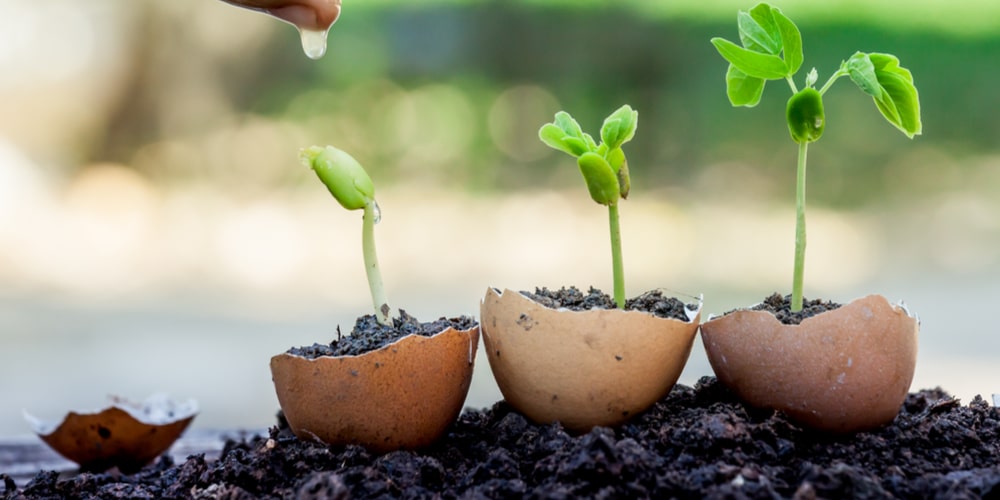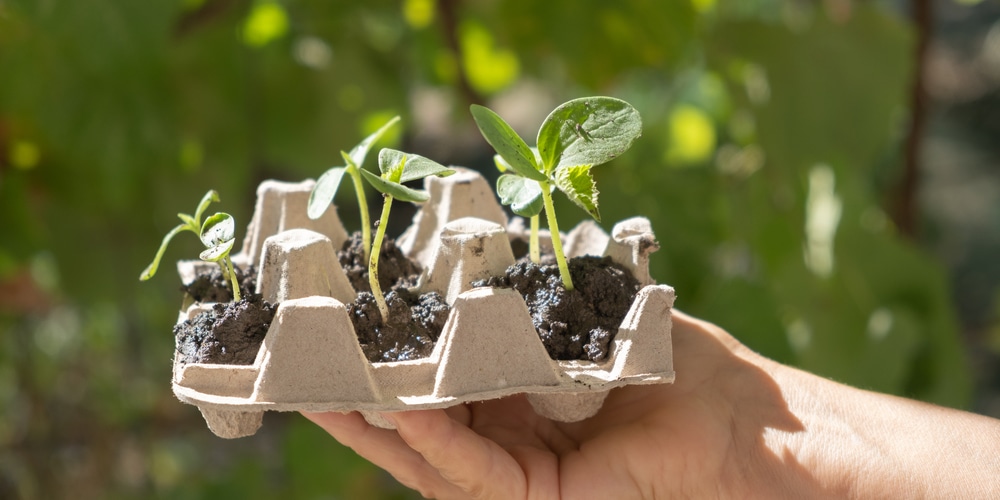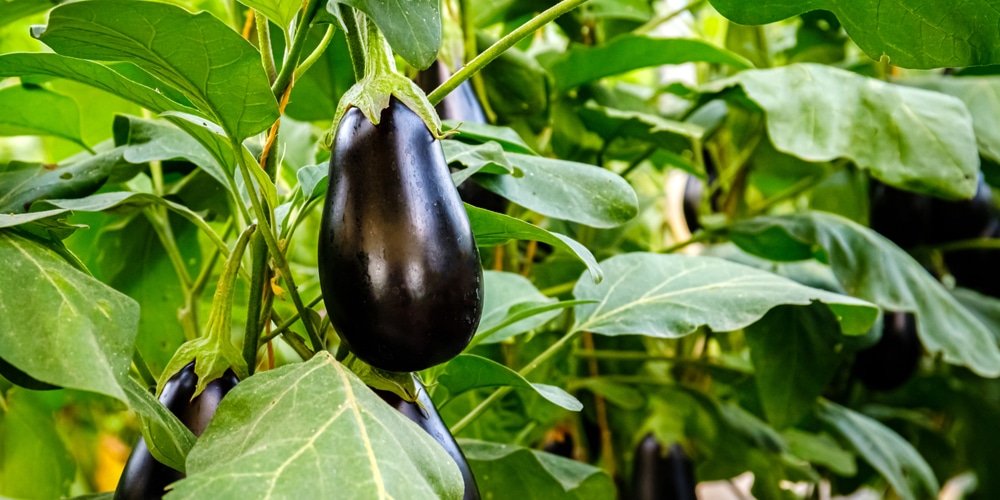Eggplants are one of the most nutritious vegetables you can grow in your garden. If you’re wondering how to grow eggplants from seeds, look no further and read our short guide below.
Is Eggplant Easy to Grow From Seed?
Like tomatoes, eggplants are easy to grow as long as you provide the right conditions. The two primary needs of eggplant are heat and light, and you’ll need a temperature range of somewhere between 60 to 95 degrees F (or 15 to 35 degrees C) to germinate eggplant seeds.
Aside from warmth, eggplant seedlings will require a spot in your yard or garden that gets full sunlight throughout the day. If you’re asking, ‘can you plant eggplant seeds directly in the ground?’
The answer is yes, as long as the ground and climate are warm enough, and you’re confident that your eggplant will grow to maturity within the growing season. Otherwise, you can start eggplant seeds indoors around 4 to 6 weeks before the last expected frost.
Transplanting might be the better option if your zone has winter and freezing temperatures. You can protect your eggplant seeds indoors and put them in a warm location for successful germination. You can then move them outside to get optimal sunlight once spring arrives and all risk of frost has passed.
In general, most eggplant varieties will need anywhere between 100-120 days to mature and produce fruit.
How to Start Eggplant Seeds
Here are the steps on how to grow eggplant from seeds:
Step 1. Gather Your Materials
The first step to growing eggplants from seeds is to prepare all the materials you need, particularly the seed container, soil, and water.
You’ll have free rein over the seed starting container, be it a cell tray, mini pots, or even recycled plastic bottles. As for media, eggplants prefer well-draining soil that contains lots of organic matter and compost.
You can get a seed warmer to bring the temperature up to the optimal range of 70 to 80 degrees F, as well as a spray bottle so you can moisten the soil.
Step 2. Plant the Seeds at the Right Depth
Soaking the eggplant seeds in water for 24 hours may encourage faster germination, but it’s not a strict requirement. Once you have filled your pot or container with the soil, you can sow the eggplant seeds to about one-fourth inch deep. Make sure to moisten the soil with the spray bottle every day.
In addition, you can place the seeds in a humidity dome and put the cover on to create a greenhouse effect. Higher humidity means the seeds have a higher chance to germinate.
Step 3. Put Them in a Warm Location
If everything goes well then you should see your eggplant seeds sprout within 7 to 10 days. At this point, you should begin exposing them to bright light either on a window or under a grow light.
Step 4. Observe Proper Eggplant Seedling Care
Remove weak seedlings once your eggplants reach a height of 5 to 6 inches. It’s worth noting that eggplants do not want to sit on soil that’s completely dry, so monitor and water when the surface of the soil is dry to the touch.
Eggplants rely on nutrition and light to grow vigorously. You can begin feeding your seedlings fertilizer or compost once a week to supplement their growth.
In around 6 to 8 weeks your eggplant seedlings should be ready to be moved outdoors. Hold off on this process if daytime temperatures do not consistently reach 70 degrees F (or 21 degrees C).
Step 5. Transplant Outside
Once your eggplants are ready to be moved, choose a site that gets full sun. Prepare the ground or soil and observe a spacing of 18 to 24 inches, and 24 to 36 inches when planting in rows. See to it that the growing medium is well-draining and contains lots of organic matter and nutrient-rich compost.
Alternatively, you can grow eggplants in containers that are 12 inches deep and wide. Give them the same soil medium and feeding as you would eggplants that are transplanted on the ground.
At this point, you can add a 2 or 3-inch layer of mulch around the eggplants to retain moisture and keep them warm. Remember to water often and feed with soluble fertilizer or compost tea to support optimal growth and fruiting. Keep an eye on your plants and look out for pests.
Related article: Egg Plant Growing Stages


